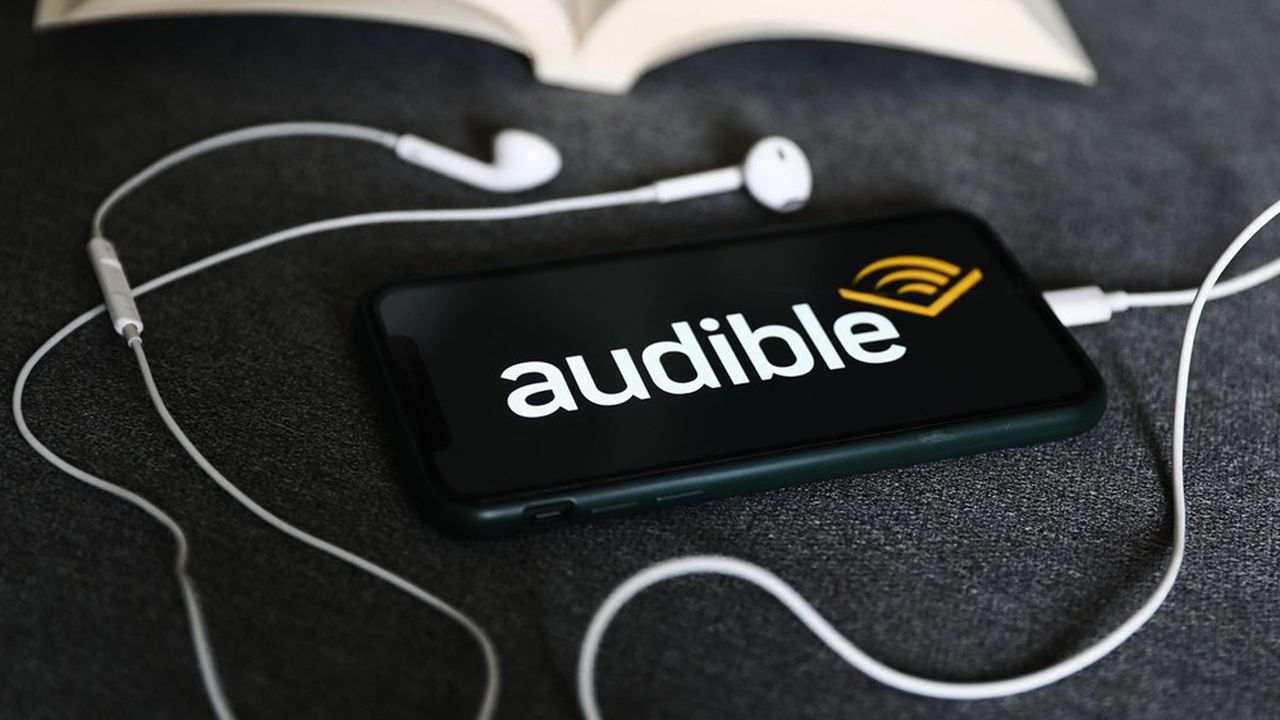About Audible
Audible is an audiobook service that provides users with access to a vast selection of audiobooks, original audio shows, and other spoken-word content. It was founded in 1995 and acquired by Amazon in 2008. Audible offers a subscription service that allows users to download and listen to audiobooks on their devices, including smartphones, tablets, and computers.
With Audible, users can browse and purchase audiobooks, listen to samples, and even exchange books they didn’t enjoy. Audible also offers a range of original content, including podcasts, audio dramas, and lectures.
Audible‘s service is available in many countries worldwide and offers a variety of subscription plans, including a free trial for new users. Audible also offers a credit system, where users can purchase credits that can be redeemed for audiobooks.
Overall, Audible is a popular service for those who enjoy listening to books and other spoken-word content on the go.
Benefits of listening to audiobooks
There are several benefits to listening to audiobooks, including:
- Convenience: Audiobooks allow you to listen to books while you’re doing other things, such as driving, exercising, or doing chores.
- Improved comprehension: Listening to an audiobook can improve comprehension, particularly for people who have difficulty reading or have visual impairments.
- Access to a wider range of books: Audiobooks provide access to a wide range of books, including many that may not be available in print format or that are out of print.
- Enhanced entertainment: Audiobooks can be an entertaining way to pass the time, particularly during long car rides or flights.
- Flexibility: With audiobooks, you can control the speed of the narration, pause, rewind, or fast forward, which allows for more flexibility than reading a printed book.
- Improved vocabulary: Listening to audiobooks can help improve vocabulary, particularly for second language learners.
- Mental stimulation: Listening to audiobooks can be mentally stimulating and can improve memory, concentration, and attention.
Overall, audiobooks are a convenient and flexible way to access books, and can be particularly helpful for people with visual impairments, reading difficulties, or busy lifestyles.
The rise of audiobooks
The rise of audiobooks can be attributed to several factors, including:
- Advances in technology: With the widespread availability of smartphones, tablets, and other mobile devices, it’s now easier than ever to access and listen to audiobooks on the go.
- Changing consumer habits: Many people lead busy lives and don’t have the time to sit down and read a book. Audiobooks allow them to consume books while they’re doing other things, such as commuting, exercising, or doing household chores.
- Accessibility: Audiobooks have made books more accessible for people with visual impairments or reading difficulties, as well as for people who prefer to listen to books rather than read them.
- Improved production values: With advances in technology, audiobooks now have higher production values, with professional narrators, sound effects, and music that enhance the listening experience.
- The popularity of podcasts: The popularity of podcasts has also contributed to the rise of audiobooks, as many people have become accustomed to listening to audio content on a regular basis.
Overall, the rise of audiobooks has opened up new opportunities for authors, publishers, and narrators, and has made books more accessible and convenient for a wider audience.
Most popular audiobooks of all time on Audible
Here are some of the most popular audiobooks of all time on Audible:
- Becoming by Michelle Obama, narrated by the author
- Harry Potter and the Sorcerer’s Stone by J.K. Rowling, narrated by Jim Dale
- The Girl on the Train by Paula Hawkins, narrated by Clare Corbett, Louise Brealey, and India Fisher
- The Martian by Andy Weir, narrated by R.C. Bray
- 1984 by George Orwell, narrated by Simon Prebble
- The Hunger Games by Suzanne Collins, narrated by Carolyn McCormick
- The Help by Kathryn Stockett, narrated by Jenna Lamia, Bahni Turpin, Octavia Spencer, and Cassandra Campbell
- Ready Player One by Ernest Cline, narrated by Wil Wheaton
- A Game of Thrones by George R.R. Martin, narrated by Roy Dotrice
- Outlander by Diana Gabaldon, narrated by Davina Porter.
These audiobooks have been popular due to their compelling stories, skilled narration, and high production value. Additionally, many of these books have also been adapted into successful movies or TV series, which has helped to increase their popularity.
Art of audiobook narration:
The art of audiobook narration is a complex craft that involves several key skills and techniques. Here are some of the elements that make up a great audiobook performance:
- Vocal range: A skilled narrator must be able to convey a wide range of characters, from different ages, genders, and backgrounds, using different tones, accents, and inflections.
- Pace and timing: A good narrator must have a sense of pacing and timing, knowing when to speed up or slow down the narration to match the mood and tone of the story.
- Emotion and expression: A skilled narrator must be able to convey the emotions and feelings of the characters, using different vocal expressions to communicate joy, sadness, anger, fear, and other emotions.
- Attention to detail: A great narrator must have an eye for detail, paying attention to character names, locations, and other details to ensure accuracy and consistency throughout the narration.
- Interpretation and nuance: A skilled narrator must be able to interpret the author’s intent and convey subtle nuances in the text, using inflection, pauses, and other techniques to bring the story to life.
- Technical proficiency: A great narrator must have excellent technical skills, including proper microphone technique, editing, and post-production skills, to ensure that the final product is of high quality.
Overall, the art of audiobook narration is a complex and multi-faceted craft that requires a combination of technical proficiency, interpretive skill, and vocal range to create a compelling and immersive listening experience for the listener.

















